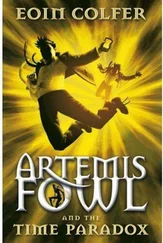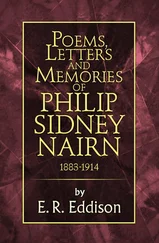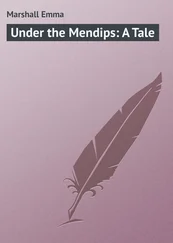Emma Marshall - Penshurst Castle in the Time of Sir Philip Sidney
Здесь есть возможность читать онлайн «Emma Marshall - Penshurst Castle in the Time of Sir Philip Sidney» — ознакомительный отрывок электронной книги совершенно бесплатно, а после прочтения отрывка купить полную версию. В некоторых случаях можно слушать аудио, скачать через торрент в формате fb2 и присутствует краткое содержание. Жанр: foreign_prose, на английском языке. Описание произведения, (предисловие) а так же отзывы посетителей доступны на портале библиотеки ЛибКат.
- Название:Penshurst Castle in the Time of Sir Philip Sidney
- Автор:
- Жанр:
- Год:неизвестен
- ISBN:нет данных
- Рейтинг книги:4 / 5. Голосов: 1
-
Избранное:Добавить в избранное
- Отзывы:
-
Ваша оценка:
- 80
- 1
- 2
- 3
- 4
- 5
Penshurst Castle in the Time of Sir Philip Sidney: краткое содержание, описание и аннотация
Предлагаем к чтению аннотацию, описание, краткое содержание или предисловие (зависит от того, что написал сам автор книги «Penshurst Castle in the Time of Sir Philip Sidney»). Если вы не нашли необходимую информацию о книге — напишите в комментариях, мы постараемся отыскать её.
Penshurst Castle in the Time of Sir Philip Sidney — читать онлайн ознакомительный отрывок
Ниже представлен текст книги, разбитый по страницам. Система сохранения места последней прочитанной страницы, позволяет с удобством читать онлайн бесплатно книгу «Penshurst Castle in the Time of Sir Philip Sidney», без необходимости каждый раз заново искать на чём Вы остановились. Поставьте закладку, и сможете в любой момент перейти на страницу, на которой закончили чтение.
Интервал:
Закладка:
There was a settle in one corner of the parlour, and a cupboard with shelves in a recess in the thick wall. Here the silver was kept, and some curious old figures which had been, like the plate, handed down from the ancestors of whom Mistress Ratcliffe was so proud.
In another recess were a few books, in heavy vellum bindings – Tyndale's translation of the Bible, with silver clasps; and some dull sermons, roughly bound, with an early edition of the Boke of Chess; the prayer-book of Edward the Sixth, and some smaller and insignificant volumes, completed Mistress Ratcliffe's library.
Mistress Ratcliffe did not concern herself with the awakening life of these remarkable times in literature and culture.
It was nothing to her that numerous poets and authors, from Edmund Spenser to many humbler craftsmen of the pen, were busy translating from the Italian the tales of Boccaccio, or the Latin of Virgil.
The horizon had not yet widened to the small landed proprietors of these days, and education, as we understand the word, was confined to the few, and had not reached the people to whom the concerns of everyday life were all-important. Women like Mistress Ratcliffe could often scarcely write their own names, and read slowly and with difficulty the psalms in their prayer-book, or the lessons of the Church in their Bible.
Spelling was eccentric, even in the highest circles, as many letters still preserved in family archives prove, and was made to suit the ear and eye of the writer, without reference to rule or form.
The evening passed somewhat slowly. There was an evident restraint upon every one present.
Dorothy's performance on the mandoline did not elicit much praise, except from Mistress Ratcliffe, who was annoyed that George should seat himself on the settle, by Lucy's side, and encourage her to talk, instead of listening while his cousin sang a melancholy ditty, in anything but a musical voice.
When Dorothy had finished, she laid down the mandoline in a pet, and yawning, said, —
'I am weary after my long ride from Tunbridge, Aunt Ratcliffe. I pray you forgive me if I retire early to bed.'
'Nay, Doll, you must have a cup of spiced wine ere you go, we cannot spare you yet.'
'It is plain I am not wanted, so I can well be spared,' was the reply, with a disagreeable laugh and a jerk of the head in the direction of the settle.
Lucy now sprang up, saying, —
'I, too, must crave leave to bid you good evening, Mistress Ratcliffe. I have to settle plans with my sister before I sleep to-night, and the evening shadows are falling.'
'If you must leave us, Mistress Forrester,' Mistress Ratcliffe said stiffly, 'I may as well inform you, with regret, that the plan proposed by my sons for asking you to bear me company to London in a useful capacity, cannot be fulfilled. I take my niece with me, and two serving-men on the second horse, hence – '
'Oh! madam,' Lucy said, 'there is no need of excusations. I go to London in the next week as waiting-woman to my lady the Countess of Pembroke. It may be that I shall see you there, and I shall be sure to know you and Mistress Dorothy, and make you my proper reverence, even if you have forgotten me.'
'The impudent little hussy!' Mistress Ratcliffe murmured, but she retained her feelings, and said, —
'It is fortunate for you, Mistress Forrester, that you will be under due control in London, for in good sooth you will need it. If you must go, good evening.'
Lucy turned at the door and made a profound curtsey, then, drawing her kerchief closer to her throat, she left the room, George following.
'I don't set much store by Mistress Forrester's manner, Aunt Ratcliffe,' Dorothy said; 'an ill-bred country child, who, of course, is ignorant, so we will pardon her.'
'Ignorant, yes,' Mistress Ratcliffe said, 'but her pretty face.'
'Pretty!' Dorothy screamed, 'Pretty! Nay, aunt, you cannot call that baby-faced chit pretty. No air; no breeding; mere dairymaid's beauty. It makes me laugh to think how proud she was of her fine gown and cap, which only showed her awkward gait the more.' And Mistress Dorothy fingered her Flemish lace and the string of beads round her short, thick neck, with profound belief in her own charms.
If Lucy's beauty was that of a milkmaid, Dorothy's was decidedly of a different character. Her complexion was sallow and pale; her hair, which was by no means abundant, was of the sandy hue, which she tried to persuade herself was like the Queen's. Her eyes were of a greenish colour, and deeply set under a heavy forehead, and her figure was angular and ungraceful.
Fine feathers do not always make a fine bird, and Dorothy Ratcliffe, although with what in those days was considered to be a fortune at her back, did not find fervent suitors for her favour. She was, therefore, very ready to fall in with Mistress Ratcliffe's wishes, and take pains to ingratiate herself with George, failing Humphrey, whose position as one of Mr Sidney's esquires, made him the more desirable of the two brothers.
Dorothy Ratcliffe was the child of George's uncle, who was a recluse living at Tunbridge. He was a scholar and a pedant, and concerned himself but little about his only child, whose fortune was inherited from her mother.
Marriages in those days were generally settled for the people principally concerned, with or without their consent, as it happened, and Master Ratcliffe and George's mother had a sort of tacit understanding with each other that Dorothy should take herself and her fortune to Hillbrow Place.
Dorothy was not unwilling to find herself mistress there, but she had always a lingering hope that Humphrey would at last be a victim to her charms, and then it would be easy to throw George over.
But things did not look very promising, and Dorothy asked, in an irritable tone, before she parted with her aunt for the night, —
'Is Humphrey so taken up with the grand folk that he cannot find the time to pay his dutiful respects to you, aunt?'
'He was here late the last evening,' Mistress Ratcliffe said, 'and is, with George, anxious to furnish Mr Sidney with the pick of the horses in the stable. Humphrey can scarce stir from Mr Sidney.'
'So it seems,' Dorothy said. 'Methinks, where there's a will there's a way; but we shall have his company in London.'
'Yes, and George's also. You will favour my poor boy's suit, Doll.'
'Your poor boy! nay, aunt, he is not worthy of pity, when he wins favour from a peerless beauty like Mistress Forrester. But let be, it will not break my heart if he gives you this fair country maid for your daughter, who has not – so I have heard – so much as a brass farthing to call her own.'
Deeply chagrined, and with an uneasy suspicion that Dorothy might be right in what she said, Mistress Ratcliffe left her niece to repose, saying to herself, 'She has a tongue and a temper of her own, but we will soon tame her when we get her here.'
CHAPTER IV
THE HAWK AND THE BIRD
'So doth the fox the lamb destroy we see,
The lion fierce, the beaver, roe or gray,
The hawk the fowl, the greater wrong the less,
The lofty proud the lowly poor oppress.'
When George left Lucy at the door of Ford Place, she ran quickly through the kitchen, where Mistress Forrester was resting on the settle after the labours of the day.
Things had not gone well with the sick lambs, both were dead, and one of the cart-horses had gone lame, and the eggs of the pea-hen were addled.
These circumstances were not likely to sweeten Mistress Forrester's temper, and Lucy, who never bore malice, received a sharp answer in reply to her inquiries as to the condition of the lambs.
'They are dead, and much you care, flaunting off with your lover instead of turning your hand to help at home.'
Читать дальшеИнтервал:
Закладка:
Похожие книги на «Penshurst Castle in the Time of Sir Philip Sidney»
Представляем Вашему вниманию похожие книги на «Penshurst Castle in the Time of Sir Philip Sidney» списком для выбора. Мы отобрали схожую по названию и смыслу литературу в надежде предоставить читателям больше вариантов отыскать новые, интересные, ещё непрочитанные произведения.
Обсуждение, отзывы о книге «Penshurst Castle in the Time of Sir Philip Sidney» и просто собственные мнения читателей. Оставьте ваши комментарии, напишите, что Вы думаете о произведении, его смысле или главных героях. Укажите что конкретно понравилось, а что нет, и почему Вы так считаете.












